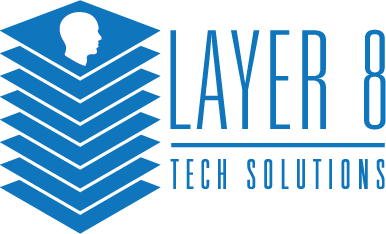
Tech And Small Businesses: Advice To Small Businesses On How They Can Leverage Technology To Grow And Succeed
November 20, 2023In today’s digitally connected world, data privacy and ethics have become paramount concerns for individuals and organizations alike. With the increasing amount of personal information being collected and shared online, it is crucial to understand the ethical implications of data collection, address privacy concerns, and explore effective ways to safeguard personal information.
Table of Contents
1. Introduction
2. The Importance of Data Privacy
3. Ethical Implications of Data Collection
4. Privacy Concerns in the Digital Age
5. Protecting Personal Information
6. Ways to Enhance Online Privacy
7. Transparency and Consent
8. Data Security Measures
9. Data Breaches and Their Consequences
10. Regulatory Frameworks
11. Corporate Responsibility
12. The Role of Individuals
13. Balancing Convenience and Privacy
14. Conclusion
15. Frequently Asked Questions (FAQs)
1. Introduction
In an era where data is often referred to as the new oil, the ethical aspects of data collection and privacy have come under intense scrutiny. This article delves into the critical issues surrounding data privacy and ethics, exploring the challenges, implications, and solutions.
2. The Importance of Data Privacy
Data privacy is not just a matter of individual rights; it’s a fundamental aspect of maintaining trust in the digital age. When users entrust their personal information to organizations, they expect it to be handled with care and integrity.
3. Ethical Implications of Data Collection
The collection of data, especially without informed consent, raises ethical questions. We’ll explore the fine line between data collection for legitimate purposes and potential misuse.
4. Privacy Concerns in the Digital Age
This section highlights the various privacy concerns individuals face in their daily online activities, from social media platforms to e-commerce websites.
5. Protecting Personal Information
Discussing practical steps and strategies individuals can adopt to safeguard their personal information from cyber threats and data breaches.
6. Ways to Enhance Online Privacy
Exploring tools and practices that can help users maintain a higher level of online privacy without compromising their digital experiences.
7. Transparency and Consent
The importance of organizations being transparent about their data collection practices and obtaining clear consent from users.
8. Data Security Measures
Detailing the technical aspects of data security, including encryption, authentication, and secure browsing.
9. Data Breaches and Their Consequences
Highlighting the devastating effects of data breaches and why organizations must invest in robust security measures.
10. Regulatory Frameworks
An overview of existing data protection laws and regulations, such as GDPR and CCPA, and their impact on data privacy.
11. Corporate Responsibility
Exploring the ethical responsibility of businesses in handling customer data and maintaining trust.
12. The Role of Individuals
How individuals can take an active role in protecting their data and making informed choices.
13. Balancing Convenience and Privacy
Discussing the delicate balance between enjoying the conveniences of the digital world and protecting one’s privacy.
14. Conclusion
In conclusion, data privacy and ethics are pivotal in today’s interconnected world. By understanding the ethical implications of data collection, addressing privacy concerns, and adopting best practices, we can navigate the digital landscape more securely.
15. Frequently Asked Questions (FAQs)
Q1: What is the difference between data privacy and data security?
Data privacy is about controlling who has access to your data, while data security focuses on protecting that data from unauthorized access, breaches, and theft.
Q2: How can I protect my personal information on social media?
You can start by reviewing your privacy settings, being cautious about what you share, and regularly updating your passwords.
Q3: What are the consequences of a data breach for a company?
A data breach can lead to reputational damage, financial losses, legal consequences, and a loss of customer trust.
Q4: Are there any international laws governing data privacy?
Yes, the General Data Protection Regulation (GDPR) in Europe and the California Consumer Privacy Act (CCPA) in the United States are examples of such laws.
Q5: How can I report a data privacy violation?
You can report data privacy violations to the relevant data protection authority in your jurisdiction or seek legal advice.
In an age where our digital footprints are constantly expanding, it’s crucial to be aware of the ethical implications of data collection and the importance of safeguarding personal information. By understanding these issues and taking proactive steps, both individuals and organizations can contribute to a safer and more secure digital environment.


